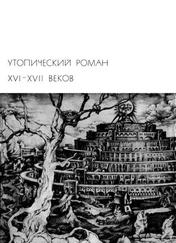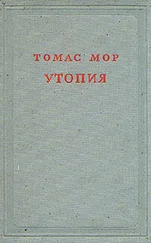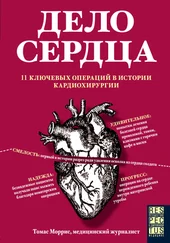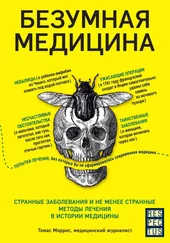"This law was made by Utopus, not only for preserving the public peace, which he saw suffered much by daily contentions and irreconcilable heats, but because he thought the interest of religion itself required it. He judged it not fit to determine anything rashly; and seemed to doubt whether those different forms of religion might not all come from God, who might inspire man in a different manner, and be pleased with this variety; he therefore thought it indecent and foolish for any man to threaten and terrify another to make him believe what did not appear to him to be true. And supposing that only one religion was really true, and the rest false, he imagined that the native force of truth would at last break forth and shine bright, if supported only by the strength of argument, and attended to with a gentle and unprejudiced mind; while, on the other hand, if such debates were carried on with violence and tumults, as the most wicked are always the most obstinate, so the best and most holy religion might be choked with superstition, as corn is with briars and thorns; he therefore left men wholly to their liberty, that they might be free to believe as they should see cause; only he made a solemn and severe law against such as should so far degenerate from the dignity of human nature, as to think that our souls died with our bodies, or that the world was governed by chance, without a wise overruling Providence: for they all formerly believed that there was a state of rewards and punishments to the good and bad after this life; and they now look on those that think otherwise as scarce fit to be counted men, since they degrade so noble a being as the soul, and reckon it no better than a beast's: thus they are far from looking on such men as fit for human society, or to be citizens of a well–ordered commonwealth; since a man of such principles must needs, as oft as he dares do it, despise all their laws and customs: for there is no doubt to be made, that a man who is afraid of nothing but the law, and apprehends nothing after death, will not scruple to break through all the laws of his country, either by fraud or force, when by this means he may satisfy his appetites. They never raise any that hold these maxims, either to honours or offices, nor employ them in any public trust, but despise them, as men of base and sordid minds. Yet they do not punish them, because they lay this down as a maxim, that a man cannot make himself believe anything he pleases; nor do they drive any to dissemble their thoughts by threatenings, so that men are not tempted to lie or disguise their opinions; which being a sort of fraud, is abhorred by the Utopians: they take care indeed to prevent their disputing in defence of these opinions, especially before the common people: but they suffer, and even encourage them to dispute concerning them in private with their priest, and other grave men, being confident that they will be cured of those mad opinions by having reason laid before them. There are many among them that run far to the other extreme, though it is neither thought an ill nor unreasonable opinion, and therefore is not at all discouraged. They think that the souls of beasts are immortal, though far inferior to the dignity of the human soul, and not capable of so great a happiness. They are almost all of them very firmly persuaded that good men will be infinitely happy in another state: so that though they are compassionate to all that are sick, yet they lament no man's death, except they see him loath to part with life; for they look on this as a very ill presage, as if the soul, conscious to itself of guilt, and quite hopeless, was afraid to leave the body, from some secret hints of approaching misery. They think that such a man's appearance before God cannot be acceptable to Him, who being called on, does not go out cheerfully, but is backward and unwilling, and is as it were dragged to it. They are struck with horror when they see any die in this manner, and carry them out in silence and with sorrow, and praying God that He would be merciful to the errors of the departed soul, they lay the body in the ground: but when any die cheerfully, and full of hope, they do not mourn for them, but sing hymns when they carry out their bodies, and commending their souls very earnestly to God: their whole behaviour is then rather grave than sad, they burn the body, and set up a pillar where the pile was made, with an inscription to the honour of the deceased. When they come from the funeral, they discourse of his good life, and worthy actions, but speak of nothing oftener and with more pleasure than of his serenity at the hour of death. They think such respect paid to the memory of good men is both the greatest incitement to engage others to follow their example, and the most acceptable worship that can be offered them; for they believe that though by the imperfection of human sight they are invisible to us, yet they are present among us, and hear those discourses that pass concerning themselves. They believe it inconsistent with the happiness of departed souls not to be at liberty to be where they will: and do not imagine them capable of the ingratitude of not desiring to see those friends with whom they lived on earth in the strictest bonds of love and kindness: besides, they are persuaded that good men, after death, have these affections; and all other good dispositions increased rather than diminished, and therefore conclude that they are still among the living, and observe all they say or do. From hence they engage in all their affairs with the greater confidence of success, as trusting to their protection; while this opinion of the presence of their ancestors is a restraint that prevents their engaging in ill designs.
"They despise and laugh at auguries, and the other vain and superstitious ways of divination, so much observed among other nations; but have great reverence for such miracles as cannot flow from any of the powers of nature, and look on them as effects and indications of the presence of the Supreme Being, of which they say many instances have occurred among them; and that sometimes their public prayers, which upon great and dangerous occasions they have solemnly put up to God, with assured confidence of being heard, have been answered in a miraculous manner.
"They think the contemplating God in His works, and the adoring Him for them, is a very acceptable piece of worship to Him.
"There are many among them that upon a motive of religion neglect learning, and apply themselves to no sort of study; nor do they allow themselves any leisure time, but are perpetually employed, believing that by the good things that a man does he secures to himself that happiness that comes after death. Some of these visit the sick; others mend highways, cleanse ditches, repair bridges, or dig turf, gravel, or stone. Others fell and cleave timber, and bring wood, corn, and other necessaries, on carts, into their towns; nor do these only serve the public, but they serve even private men, more than the slaves themselves do: for if there is anywhere a rough, hard, and sordid piece of work to be done, from which many are frightened by the labour and loathsomeness of it, if not the despair of accomplishing it, they cheerfully, and of their own accord, take that to their share; and by that means, as they ease others very much, so they afflict themselves, and spend their whole life in hard labour: and yet they do not value themselves upon this, nor lessen other people's credit to raise their own; but by their stooping to such servile employments they are so far from being despised, that they are so much the more esteemed by the whole nation.
"Of these there are two sorts: some live unmarried and chaste, and abstain from eating any sort of flesh; and thus weaning themselves from all the pleasures of the present life, which they account hurtful, they pursue, even by the hardest and painfullest methods possible, that blessedness which they hope for hereafter; and the nearer they approach to it, they are the more cheerful and earnest in their endeavours after it. Another sort of them is less willing to put themselves to much toil, and therefore prefer a married state to a single one; and as they do not deny themselves the pleasure of it, so they think the begetting of children is a debt which they owe to human nature, and to their country; nor do they avoid any pleasure that does not hinder labour; and therefore eat flesh so much the more willingly, as they find that by this means they are the more able to work: the Utopians look upon these as the wiser sect, but they esteem the others as the most holy. They would indeed laugh at any man who, from the principles of reason, would prefer an unmarried state to a married, or a life of labour to an easy life: but they reverence and admire such as do it from the motives of religion. There is nothing in which they are more cautious than in giving their opinion positively concerning any sort of religion. The men that lead those severe lives are called in the language of their country Brutheskas, which answers to those we call Religious Orders.
Читать дальше
Конец ознакомительного отрывка
Купить книгу








